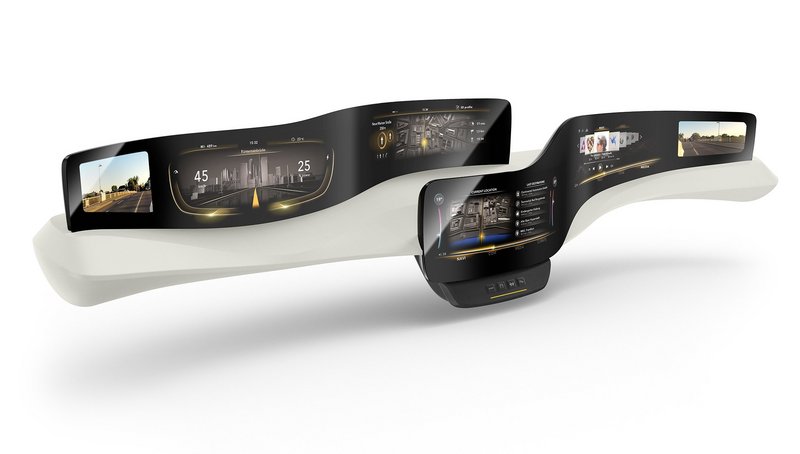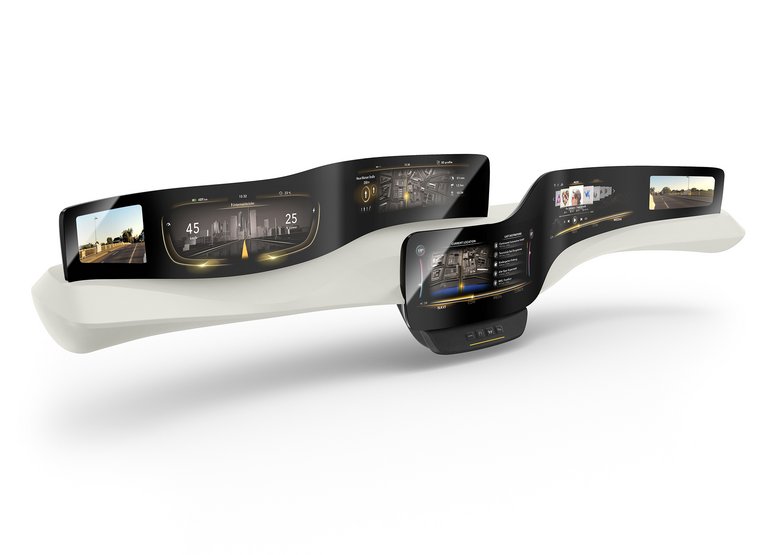Continental Exhibits Functional Surfaces for the Driver’s Cab of the Future Through Morphing Controls
- 3D-operating elements only become visible as needed
- As few buttons as possible, as much function as necessary: simple operation thanks to proximity sensors, force sensing and tactile feedback
- With 300 years of surface competence, Continental has evolved into a highly innovative specialist for surface materials in the industry
AUBURN HILLS, Mich., June 8, 2018 —Technology company Continental is set to unveil its Morphing Controls technology for vehicle interiors this month. Morphing Controls technology allows a look at the future of a vehicle’s interior where illuminated buttons stand out against the elegant surface of a dashboard as soon as the hand of the driver nears the surface. In reaction to the driver’s needs, three-dimensional buttons come to shape to allow the individual to choose their entry. The button will communicate a brief pulse of confirmation and disappear without a trace left behind on the surface as the driver pulls their hand away.
With Morphing Controls — operating elements that take shape — Continental creates vehicle interiors for human-machine interaction, making as many functions easily usable with as few buttons as possible.
Technical highlight of the surface technology
“Morphing Controls make various functions usable, depending on need and the driving situation, thanks to surfaces that change,” said Jens Brandt, vice president, Instrumentation and Driver HMI, Continental, North America. “This can reduce driver distraction with a simple dashboard that looks sleek and offers full control to the end user at all times.”
The stretchable and light-permeable Morphing Control material has the look and feel of premium artificial leather. The material permits a precise shape of the well-lit symbols with high illumination intensity and homogenous lighting. In its deactivated condition, both the symbols and the mechanical elements become invisible and intangible to the occupants.
There’s more behind the surface than what meets the eye
Operating elements that only take shape as needed help create an integrated and harmonious experience between the driver and their instrumentation. A combination of material innovation, sensors, electronics and electromechanics is necessary. Capacitive proximity sensors under the surface of the dashboard recognize the human hand and reveal the controls. These move themselves forward through the stretchable multilayer surface material and the button’s function are shown by LED illumination. The driver’s finger pressure is measured and a tactile signal is triggered when there is sufficient force – another proven principal in this series.
The pulse signal tells the driver the function has been successfully activated. With this process, Morphing Controls can practically be operated without needing to be in the driver’s line of sight.
300 years of tradition: from the “Wachstuchmacherey” to Morphing Controls
Founded at that time as a “Wachstuchmacherey” (wax cloth company), the business unit for surface materials at Continental can be traced back to the year 1718, when the company was founded in Hanover. It has since evolved over the course of its 300-year history into a highly innovative specialist for surface materials in the industry.
“Quiet surfaces in the vehicle interior cause little distraction for the eye. At the same time, operation is incredibly simple due to the proximity sensors, force recognition and tactile feedback,” said Dr. Dirk Leiß, director of the Continental business unit Benecke-Hornschuch Surface Group. “Morphing Controls are a modular concept, suitable for the door panelling or the headliner.”
The first demonstrator for the new operating elements show classic buttons. However, slide controllers can be just as easily implemented with the material technology. Morphing Controls are one of the technical highlights of surface technology that will be presented for the first time publicly during the company’s anniversary celebration.
About Continental
Continental develops pioneering technologies and services for sustainable and connected mobility of people and their goods. Founded in 1871, the technology company offers safe, efficient, intelligent and affordable solutions for vehicles, machines, traffic and transportation. In 2017, Continental generated sales of €44 billion and currently employs more than 240,000 people in 61 countries.

Mary Arraf
Head of Communications Automotive and Continental North America



